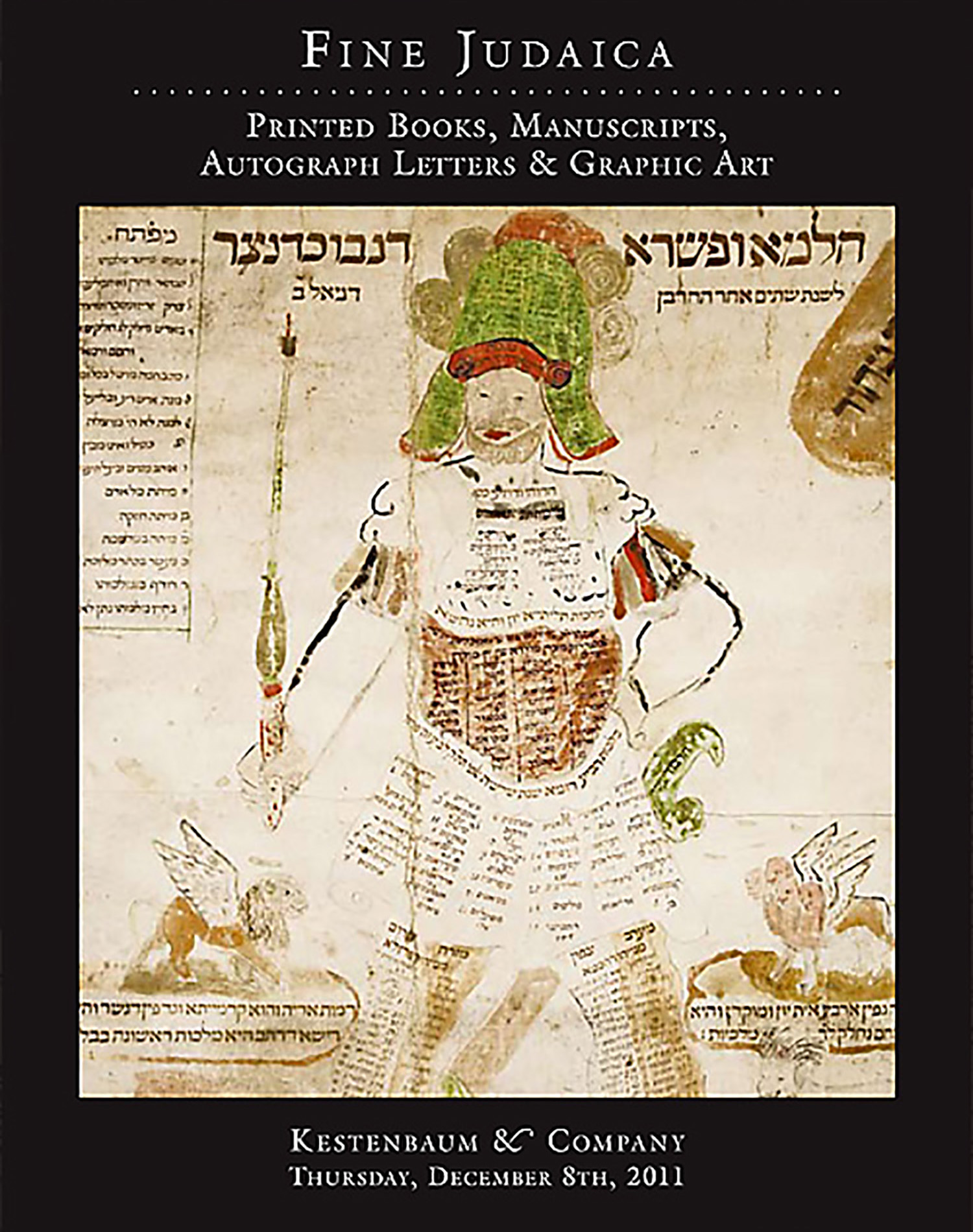HENRY M. BRACKENRIDGE, J. W. D. WORTHINGTON; & JOHN S. TYSON. Speeches on the Jew Bill in the House of Delegates in Maryland.

AUCTION 53 |
Thursday, December 08th,
2011 at 1:00
Fine Judaica: Printed Books, Manuscripts Autograph Letters & Graphic Art
Lot 16
(AMERICAN JUDAICA).
HENRY M. BRACKENRIDGE, J. W. D. WORTHINGTON; & JOHN S. TYSON. Speeches on the Jew Bill in the House of Delegates in Maryland.
Philadelphia: J. Dobson 1829
Est: $15,000 - $20,000
PRICE REALIZED $18,000
<<exceptionally important for the achievement of the full civil rights for jews in the united states.>>
While the Federal Constitution and Bill of Rights guaranteed full equality to the Jews, its provisions were not binding on state governments prior to the passage of the fourteenth amendment in 1868. Consequently, every state, with the exception of New York, proceeded to adopt a constitution that deprived the Jews of political equality. In Maryland alone there was a protracted struggle to invest the Jews with political equality.
Maryland’s first constitution, passed in 1776, retained a colonial statute requiring all public servants to invoke a Christological oath. Not only were governmental officials and members of the legislature considered public servants, but so were lawyers, military officers and jurors. Thus, a Jew was deprived of a possible livelihood, opportunities to demonstrate his loyalty and trial by his peers. The Jews of Maryland protested their inferior status as early as 1797, however it was not until 1826, when the Jew Bill was confirmed by the legislature, that Jews were alleviated of all disabilities.
The staunchest advocates of the Jewish cause during this struggle were Henry M. Brackenridge, William G. D. Worthington and John S. Tyson. Their speeches are collected in the present volume. Worthington, in his speech, read the entire correspondence between the Jews of Newport and Washington, and quoted from letters that were exchanged between the first President and the other Jewish communities. (It should be noted that Worthington’s speech was originally appeared in 1824 yet contained numerous errors that were corrected here).
Despite the fact that it was a state issue, the impact of the Jew Bill extended well beyond Maryland. It caught the young nation's attention and reverberated overseas. In Britain, where the Jewish question was an even more contentious issue, members of Parliament received copies of pro-Jew Bill speeches. The speech of one member of the legislature was translated into German and there was even a report—albeit one never confirmed—that Worthington's famous 1824 speech was translated into Hebrew.
See S. W. Baron and J. L. Blau, The Jews of the United States, Vol. 1; S. F. Chyet, The Political Rights of the Jews in the United States, in: American Jewish Archives 10.1 (Apr. 1958): 14-75; Edward Eitches, Maryland's Jew Bill, in: American Jewish Historical Quarterly 60.3 (Mar. 1971): 258-79; A. J. Karp, Beginnings: Early American Judaica, 31-6.
